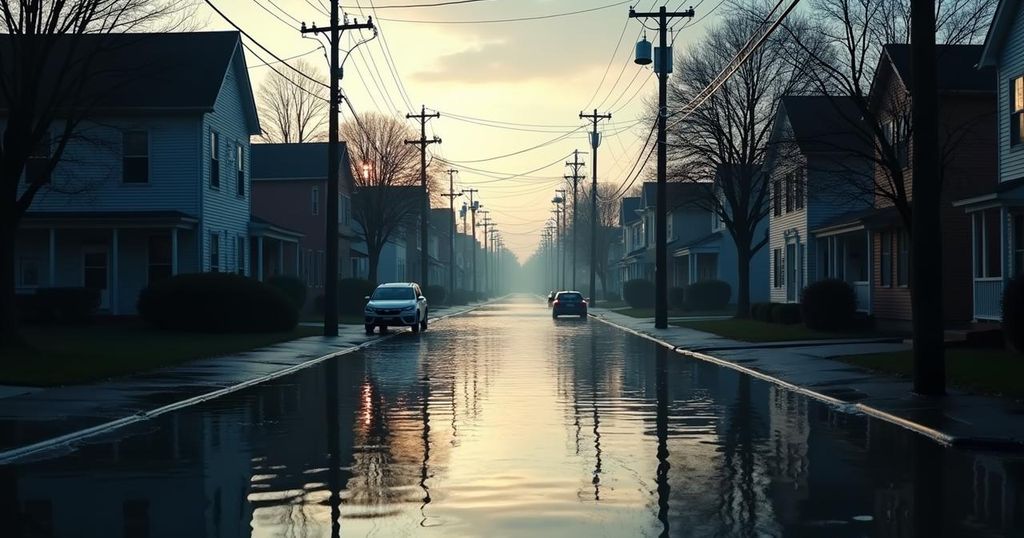Hurricane Helene’s aftermath has caused widespread flooding and communication breakdowns in western North Carolina. The region faces over 400 road closures and 61 reported fatalities across multiple states. Rescue operations are hampered by the destruction, and officials project a continued rise in the death toll as recovery efforts begin.
ASHEVILLE, N.C. — The serene arrival of Sunday in the North Carolina mountains starkly contrasted with the widespread devastation following the catastrophic impact of Hurricane Helene. Despite making landfall as a Category 4 storm in Florida, Helene unleashed torrential rainfall across numerous states, resulting in extensive flooding in small towns throughout western North Carolina. In the aftermath, communication in the region has been severely hampered, with unreliable cellphone and internet signals complicating efforts for residents to reach loved ones and check on friends. Many individuals have taken to social media to send out pleas for information, while lengthy car lines have formed at the few gas stations still operational. Buncombe County officials reported receiving over 1,000 inquiries from concerned residents attempting to locate missing family members, although they anticipate a decline in these reports as communication services are gradually restored. The human toll of this natural disaster continues to expand, with at least 61 confirmed fatalities across five states, including North Carolina, where the death toll stands at 10. South Carolina has been the hardest-hit, with 22 lives lost, while other affected states include Georgia, Florida, and Virginia. Infrastructure damage is widespread, with over 400 roads closed, including critical sections of Interstates 40 and 26. In Swannanoa, Fire Chief Anthony Penland described the town as “completely devastated,” indicating that entire neighborhoods had disappeared due to the flooding. “We have complete neighborhoods that are no longer there,” he stated, emphasizing the dire need for search-and-rescue operations in inaccessible areas. Although the heavy rainfall has eased, flood alerts remain in effect due to rivers still swelling from runoff. The National Weather Service warned of potential additional rainfall bringing further complications to an already precarious situation, necessitating continued vigilance among emergency services.
The article discusses the severe aftermath of Hurricane Helene, which, after wreaking havoc in Florida, unleashed catastrophic flooding in western North Carolina. The resulting chaos has created significant communication difficulties as residents struggle to connect with loved ones amidst extensive infrastructure damage and loss of life. The narrative highlights the urgent need for effective search-and-rescue efforts while underscoring the emotional and physical toll on affected communities.
The devastation caused by Hurricane Helene has left North Carolina towns struggling with communication challenges and severe infrastructural damage. The tragic loss of life and ongoing uncertainty surrounding missing individuals necessitate a robust response from emergency services. As the region attempts to recover, the resilience of its communities will be vital in rebuilding and restoring local spirit and economy.
Original Source: www.washingtonpost.com






